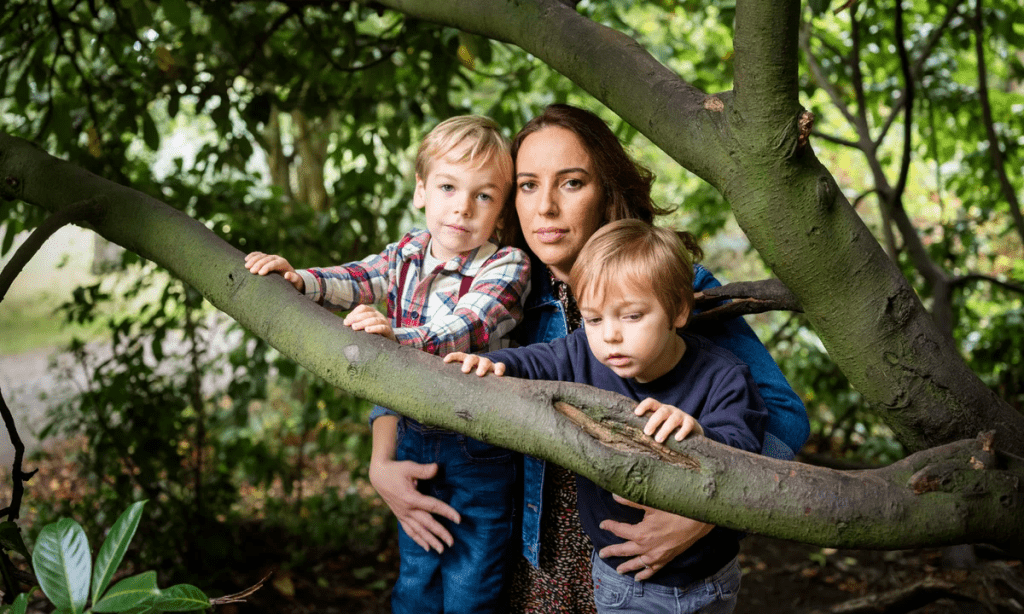As a parent, there are few things more terrifying than the thought of your child being in harm’s way. That’s why I’ll never forget the day my daughter, Amy, used our secret code word to signal that she needed an immediate rescue. It was a moment that tested my nerves, but ultimately, it reinforced the importance of having a plan in place to keep our kids safe.

When I was a child, my own mother had taught me the value of a secret code word. She explained that if I ever found myself in an uncomfortable or dangerous situation, I could use that word to discreetly let her know I needed help. As an adult, I knew I wanted to pass this life-saving trick on to my own daughter.
It started out as a typical weekend visit with her father, Dave. But when the phone rang, and Amy’s voice came through, I instantly sensed something was off. Her cheerful tone had an underlying current of fear, and when she slipped in the code word “blueberries,” my heart raced.
I knew I had to get to Amy as soon as possible. Keeping my voice calm, I told her I was on my way and not to say anything to her father. As I drove to Dave’s house, a thousand scenarios played out in my mind. What could have happened? Was Amy in danger? I had to get her out of there.
When I arrived at Dave’s, I was greeted by a woman I didn’t recognize – Lisa, Dave’s new girlfriend. She had been living with him for weeks, and neither he nor Amy had mentioned this to me. My protective instincts kicked into high gear, and I knew I had to get Amy out of that situation immediately.

I made up a story about a doctor’s appointment the next day, quickly ushering Amy out the door. As we drove away, I glanced at my daughter, searching her face for any clues about what had happened. Her silence and the relief in her eyes told me everything I needed to know – something had gone terribly wrong.
Once we were safely home, Amy finally opened up about what had transpired. Her account was heartbreaking, and it reinforced the importance of the code word we had established. In that moment, it had quite literally saved her from a potentially abusive situation.
When Amy tearfully told me about the cruel way Lisa, her father’s girlfriend, had been treating her, I was shocked and horrified. The idea that a trusted adult would intentionally mistreat a child is unthinkable, yet it happens more often than we’d like to admit. Step-parent abuse is a silent epidemic, with many children suffering in silence, too afraid to speak up.

As I sat with Amy, holding her close, I realized how crucial it was that we had a secret code word. This simple tool gave Amy a way to communicate her distress without drawing attention or facing retaliation. By having a pre-established plan, she was able to reach out for help in a way that felt safe and empowering.
Selecting the perfect code word is an important task for parents. It needs to be unique, easy for your child to remember, and not easily guessed in casual conversation. Consider a short phrase like “sunshine forest” or “dancing penguin” to add an extra layer of security. Practice using the code word in different scenarios so your child feels confident and prepared.

The aftermath of Amy’s experience has been challenging, but I’m grateful she had the courage to speak up. The wounds of childhood trauma can run deep, and it’s crucial that we prioritize our children’s emotional and mental well-being. With patience, love, and the right support, Amy is slowly healing and learning to trust again.
One of the most important lessons I’ve learned is the importance of empowering our children to advocate for themselves. By giving Amy the tools and the confidence to use our code word, I was able to intervene and protect her from further harm. This experience has inspired me to continue teaching Amy the skills she needs to stand up to bullies, both in and out of the home.

The day Amy used our secret code word was a wake-up call, but it also showed me the power of being prepared. By having a plan in place, I was able to respond quickly and effectively, ensuring my daughter’s safety and wellbeing. I share this story in the hopes that other parents will consider creating a code word with their children, because you never know when it might be the tool they need to save themselves.


